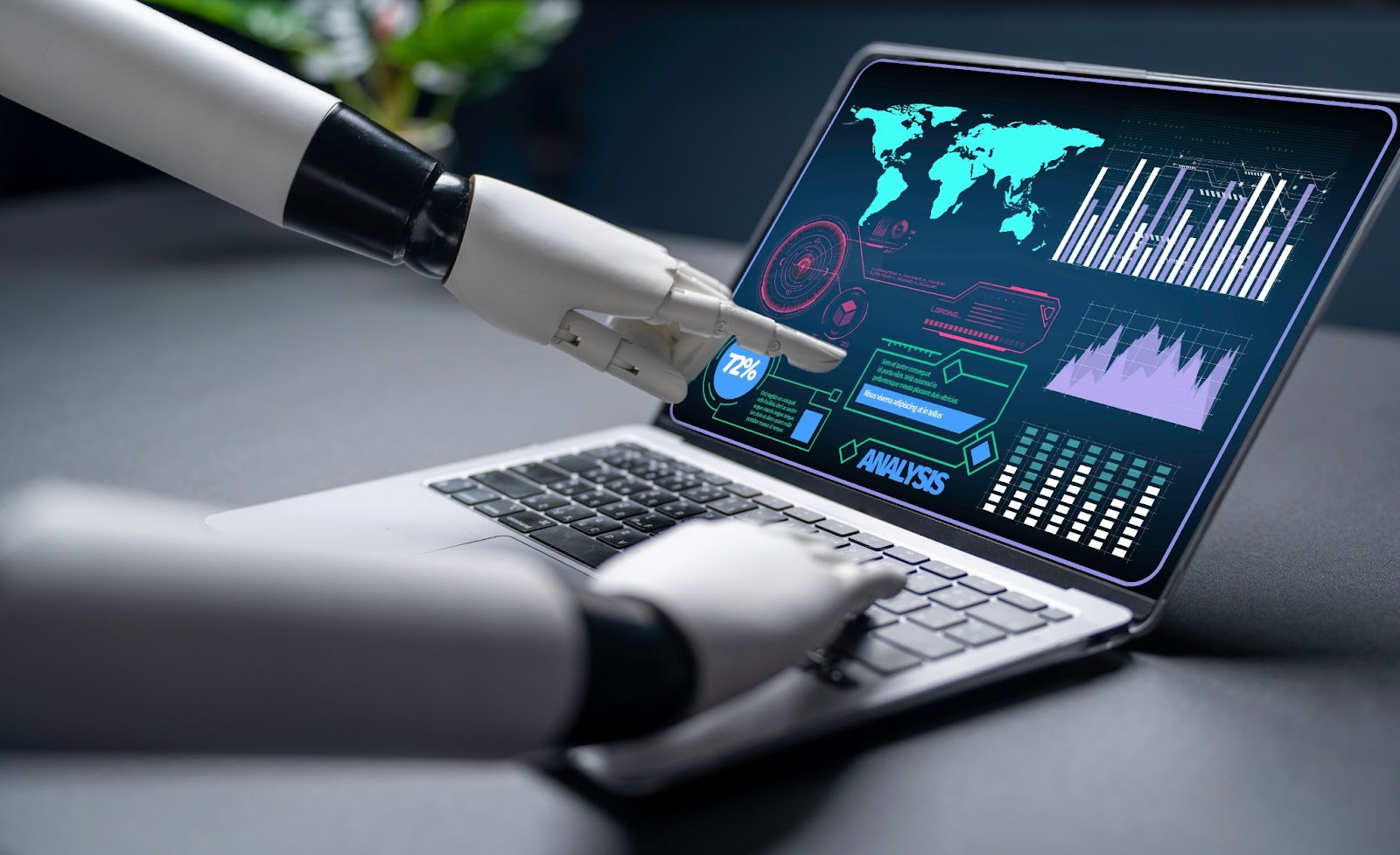Artificial intelligence (AI) and machine learning (ML) have become some of the most talked about and fastest-growing technologies of our time. They are fundamentally changing the way we analyze data and make decisions in areas ranging from business and medicine to finance and social sciences. These technologies, as part of the broader field of computer science, make it possible to automate processes, predict trends, and improve the efficiency of systems. In this article, we will look at how AI and ML are transforming data analysis and decision-making, what key advances have already been made, and what the future holds.
Fundamentals of Artificial Intelligence and Machine Learning
Artificial intelligence is a field of computer science concerned with the creation of systems capable of performing tasks that require human intelligence. These tasks can include natural language understanding, image recognition, decision-making, and more. AI encompasses a variety of approaches, including rules, algorithms, and statistical methods.
Machine learning is one of the main areas of AI and focuses on creating algorithms that allow systems to learn from data and improve their performance without explicit programming. ML includes several key methods:
- Supervised Learning: Used to solve classification and regression problems. The system learns from labeled data and uses this information to predict outcomes on new data.
- Unsupervised learning: Used to identify hidden patterns in data. This method is used in clustering and dimensionality reduction.
- Reinforcement learning: Based on the principle of interaction between the agent and the environment, which allows the system to make decisions and learn based on rewards and punishments.
Revolutionizing Data Analytics
Data Processing Efficiency
Modern AI and ML systems allow you to process huge amounts of data with high speed and accuracy. Traditional data analysis methods can be slow and limited in their capabilities, especially when it comes to big data. Machine learning allows you to automatically identify patterns and patterns in large data sets, which significantly speeds up the decision-making process.
Forecasting and analytics
ML models can be used to predict various events and trends. In the financial sector, this can be predicting market fluctuations or credit risk. In healthcare, it is the prediction of the development of problems or the effectiveness of treatment. In marketing, it is the analysis of consumer behavior and the creation of personalized recommendations.
A revolution in decision-making
Process automation
AI and ML allow you to automate many routine tasks, which significantly increases productivity and reduces the likelihood of human errors. For example, in industry, AI can be used to automate product quality control, in banks — to automatically verify transactions and prevent fraud.
Improving the quality of solutions
AI and ML data analysis contributes to more informed and accurate decisions. For example, in medicine, AI can analyze medical images with higher accuracy than the human eye, which helps in diagnosing problems. In business, AI can analyze market trends and help develop strategies.

Examples of successful applications of AI and ML
Financial sector
In the financial sector, AI and ML are used to automatically detect fraud, analyze market trends, and manage investments. Algorithms can analyze large volumes of transactions in real-time and identify suspicious activities. In addition, ML helps in creating personalized financial recommendations for clients.
Retail
In retail, AI is used to optimize inventory, analyze shopping behavior, and personalize offers. For example, algorithms can predict which products will be in demand in the future and help manage inventory in the warehouse. Recommendation systems, such as those used by Amazon, help customers find interesting products based on their previous purchases and views.
Ethics and challenges
Despite all the benefits, AI and ML also face ethical and social challenges. It is important to consider the issues of data privacy, algorithm bias, and potential impact on the labor market. Transparency in AI systems and responsible use of data are key to ensuring justice and protecting human rights.
Prospects and future
The future of AI and ML promises to be exciting. These technologies are expected to continue to evolve, becoming more accurate and affordable. The possibilities for their application will expand, covering new areas and creating new solutions to complex problems. The development of quantum computing and new machine learning algorithms can open up new horizons for data analysis and decision-making.
Conclusion
Artificial intelligence and machine learning are powerful tools that are fundamentally changing the way we analyze data and make decisions. They enable faster and more accurate data processing, predict future events, and automate processes. Despite the challenges that exist, such as ethical and privacy issues, the potential of these technologies is enormous, and they will continue to have a significant impact on various aspects of our lives. With the advancement of technology, we can expect even more significant changes and innovations that will shape the future of science, business, and society as a whole.
